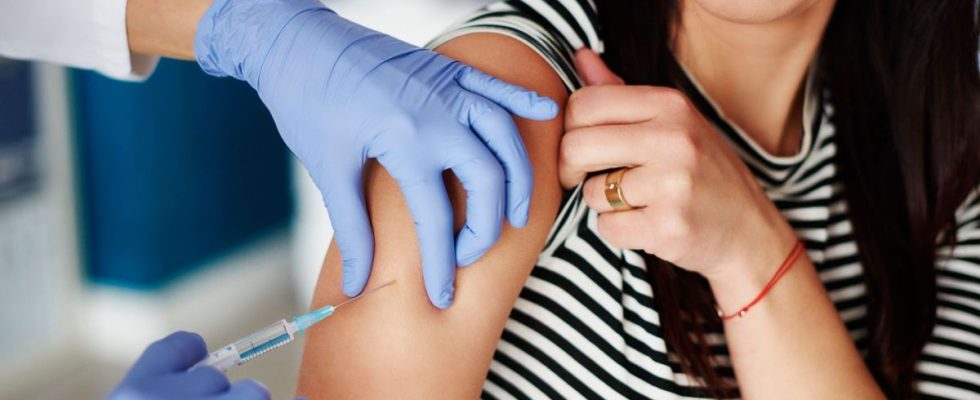Published on
Updated
Reading 1 min.
in collaboration with
Dr Odile Bagot (Gynecologist-obstetrician)
According to the conclusions of a study led by CNRS researcher Alexandra Alvergne, vaccination against Covid-19 does not cause worrying menstrual changes. The opinion of Odile Bagot, gynecologist and member of the Doctissimo expert committee.
Accused by many women of disrupting their menstrual cycles, vaccines against covid-19 have been the subject of several studies. The latest was conducted by CNRS researcher Alexandra Alvergne.
A sample of more than 12,000 women studied
For this work, the team of Franco-British experts analyzed the results of a survey carried out in the United Kingdom in 2021. This study brought together a cohort of more than 12,000 menstruating participants, of all ages, with or without child, from all geographical areas, vaccinated or not against Covid-19.
Reassuring results
Among these volunteers, 20% (or one in five women) reported menstrual disorders after being vaccinated, while in more than 70% of cases, “vaccination alone did not lead to an increase in abnormal parameters of the menstrual cycle” say the researchers.
By looking more specifically at the profiles of these women, they were able to establish that they were “women who smoked, had previously been ill with Covid-19, or were not using contraceptives containing estradiol (e.g., the combined contraceptive pill)“Notes the CNRS press release. For scientists, vaccination against Covid-19 does not cause worrying menstrual changes.
The opinion of Odile Bagot, gynecologist member of the Doctissimo expert committee
“This is rather good news, these conclusions are in line with another recently published study which also showed the absence of a cause and effect relationship between the vaccine and menstrual disorders. For the High Authority for Health, it is possible to present cycle disorders within three months after vaccination, without really knowing the origin. Be that as it may, we must take women’s voices into account and not call them into question. But we must not underestimate the nocebo effect, conveyed by social networks: many women can identify themselves when they hear about a disorder of this type or trigger it, without it having a direct link to vaccination“.
